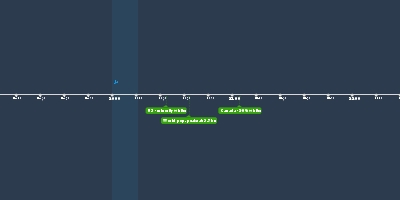Anaximander (1 janv. 610 av. J.-C. – 1 janv. 546 av. J.-C.)
Description:
Also from Miletus, was 25 years younger than Thales. He was a member of the elite of Miletus, wealthy and a statesman.In response to Thales, he postulated as the first principle an undefined, unlimited substance without qualities (apeiron), out of which the primary opposites, hot and cold, moist and dry, became differentiated. His answer was an attempt to explain observable changes by attributing them to a single source that transforms to various elements.
That he did not, like Thales, choose a typical element (earth, air, water, or fire), shows that his thinking had moved beyond the more possibly evident sources of being.
In poetic fashion, Anaximander says that the boundless is the source of beings, and that into which they perish, “according to what must be: for they give recompense and pay restitution to each other for their injustice according to the ordering of time”.
Ciekawe... jak rozumieć ten cytar?
He was supposed to have invented the gnomon, a simple sundial (zegar słoneczny). He may have introduced the knowledge of the solstices and equinox to the Greeks, as well as the twelve-hour division of the day—knowledge he probably gained from the Babylonians (Graham 49). He travelled extensively, gaining first-hand geographical knowledge.
While it would be inaccurate to call Anaximander the father of the theory of evolution (dlaczego?), the history of that theory should at least make mention of his name. Anaximander thought that human beings could not have been at their origin the way that they are now. That is, they must have arisen from some other animals, since human beings need longer stretches of time for nurture than other animals. They could not have survived, he reasons, without the generative help of other animals (Graham 57). He thought that human beings arose from or were at least akin to fish (Graham 59).
Humans originated with moisture in some sort of shell, and eventually matured, moved onto land, “and survived in a different form for a short while” (Graham 63). What evidence Anaximander might have had to support these claims we can only guess, but his willingness to explain the world on its own terms, without recourse to divine generation or intervention (although he might well have considered the boundless to be divine), is the mark of a new way of thinking.
Ale czy to nie jest wybitnie podobne do ewolucji jaką dziś znamy? Przecież ssaki rodzące się w jajku wypełnionym wodą ale na lądzie to też był chyba etap w ewolucji, która doprowadziła do pojawienia się człowieka?
Do rozsądzenia: (He drew the first map of the world, was the first to conclude that the earth is spherical - co do tych rzeczy to nie wiem. Znamy wcześniejsze mapy. Może chodzi o to, że on sam mógł wpaść na ten pomysł, żeby na mapie ująć cały świat?)
Ajouté au bande de temps:
Date:
1 janv. 610 av. J.-C.
1 janv. 546 av. J.-C.
~ 64 years
